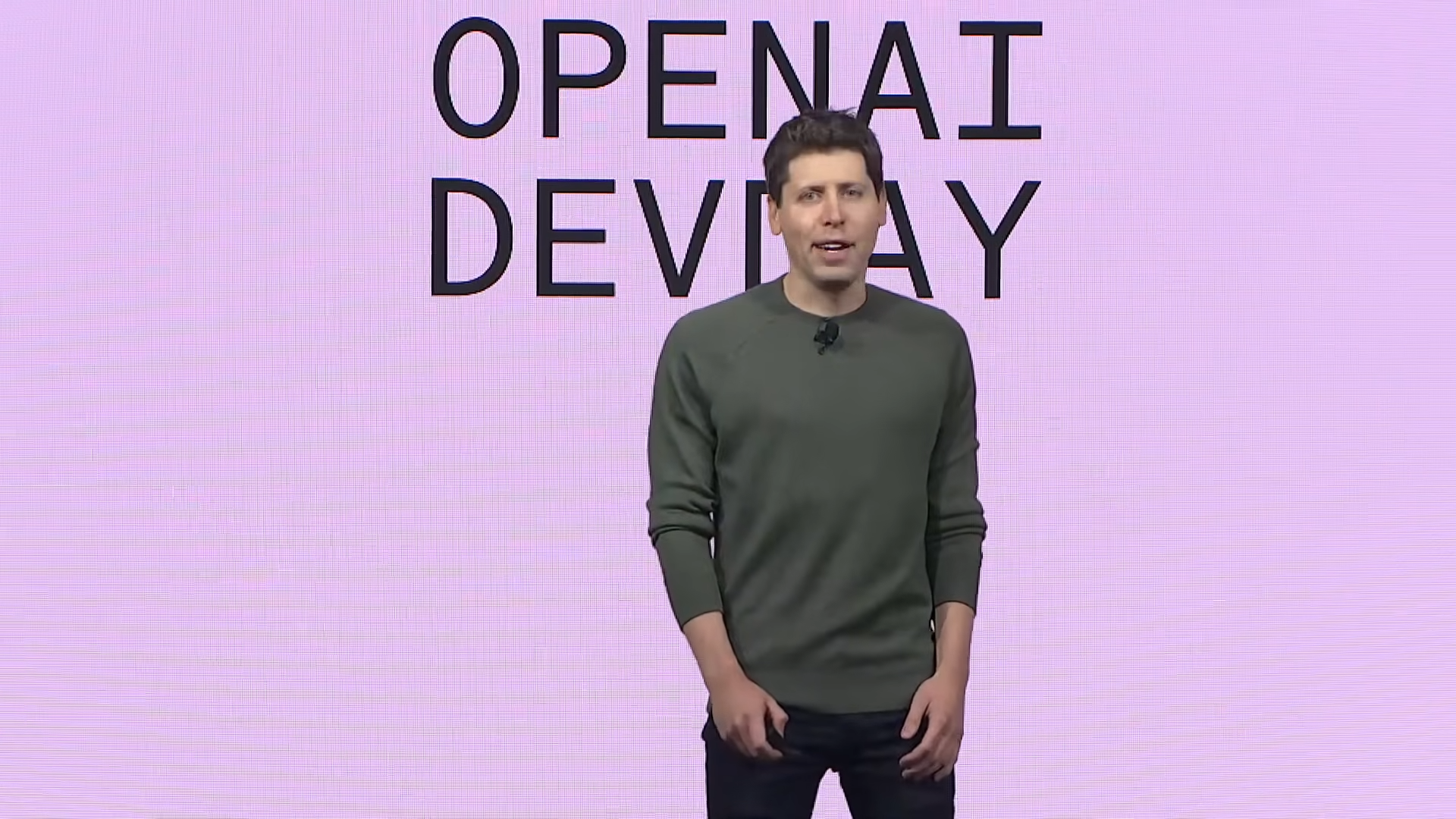OpenAI CEO Sam Altman says GPT-4 is just a preview of what's to come

At the World Economic Forum in Davos, OpenAI CEO Sam Altman outlined what he sees as the next steps in AI.
According to Altman, and in the context of regulations, GPT-4 should be considered a "preview" of what is possible. That's not easy because people are bad at envisioning exponential progress, Altman said.
He believes that the world will change faster and faster as a result of advances in AI, and that humans can only see "a few steps" ahead. But Altman expects progress in AI to be exponential, not linear.
"What does it mean if GPT 5 is as much better than GPT 4 as four was to three and six is to five, and what does it mean if we're just on that trajectory now," says Altman.
In this context, Altman emphasized the iterative deployment of AI technologies through OpenAI. The resulting engagement would help find social and economic rules for AI, make mistakes while the impact of AI is still relatively small, and collaborate across boundaries.
GPT-5 might not be called GPT-5
When asked about the next major OpenAI model, GPT-5, Altman replied that he believes the next OpenAI model will do "a lot of things better" than GPT-4 and offer "very impressive" new capabilities. It may not be called GPT-5, however, as it is not Altman's "style" to release an "iPhone 27".
Altman did not give a release date for GPT-5: "I expect us to take our time and make sure we can launch something that we feel good about and responsible about within open AI."
In an earlier interview, Altman said it was difficult to set a timeline for GPT-5 because of the difficult scientific questions to be solved and the need for more computing power.
Altman still expects AGI, but less disruptive changes
OpenAI's ultimate goal is general artificial intelligence, which Altman believes is possible in a "reasonably close-ish future" - but with less profound changes to the world and jobs than many expect, and than he himself had previously assumed.
"There will be no lack of demand, people will just do more. Expectations will rise, but so will skills," Altman says.
However, the development of general artificial intelligence (AI) could require significant amounts of energy, underscoring the need for a breakthrough in energy production, Altman says.
He sees fusion energy, particularly nuclear fission, as a possible solution, despite current skepticism. The hype surrounding AI could increase investment in new energy sources, Altman suggests.
AI News Without the Hype – Curated by Humans
As a THE DECODER subscriber, you get ad-free reading, our weekly AI newsletter, the exclusive "AI Radar" Frontier Report 6× per year, access to comments, and our complete archive.
Subscribe nowAI news without the hype
Curated by humans.
- Over 20 percent launch discount.
- Read without distractions – no Google ads.
- Access to comments and community discussions.
- Weekly AI newsletter.
- 6 times a year: “AI Radar” – deep dives on key AI topics.
- Up to 25 % off on KI Pro online events.
- Access to our full ten-year archive.
- Get the latest AI news from The Decoder.